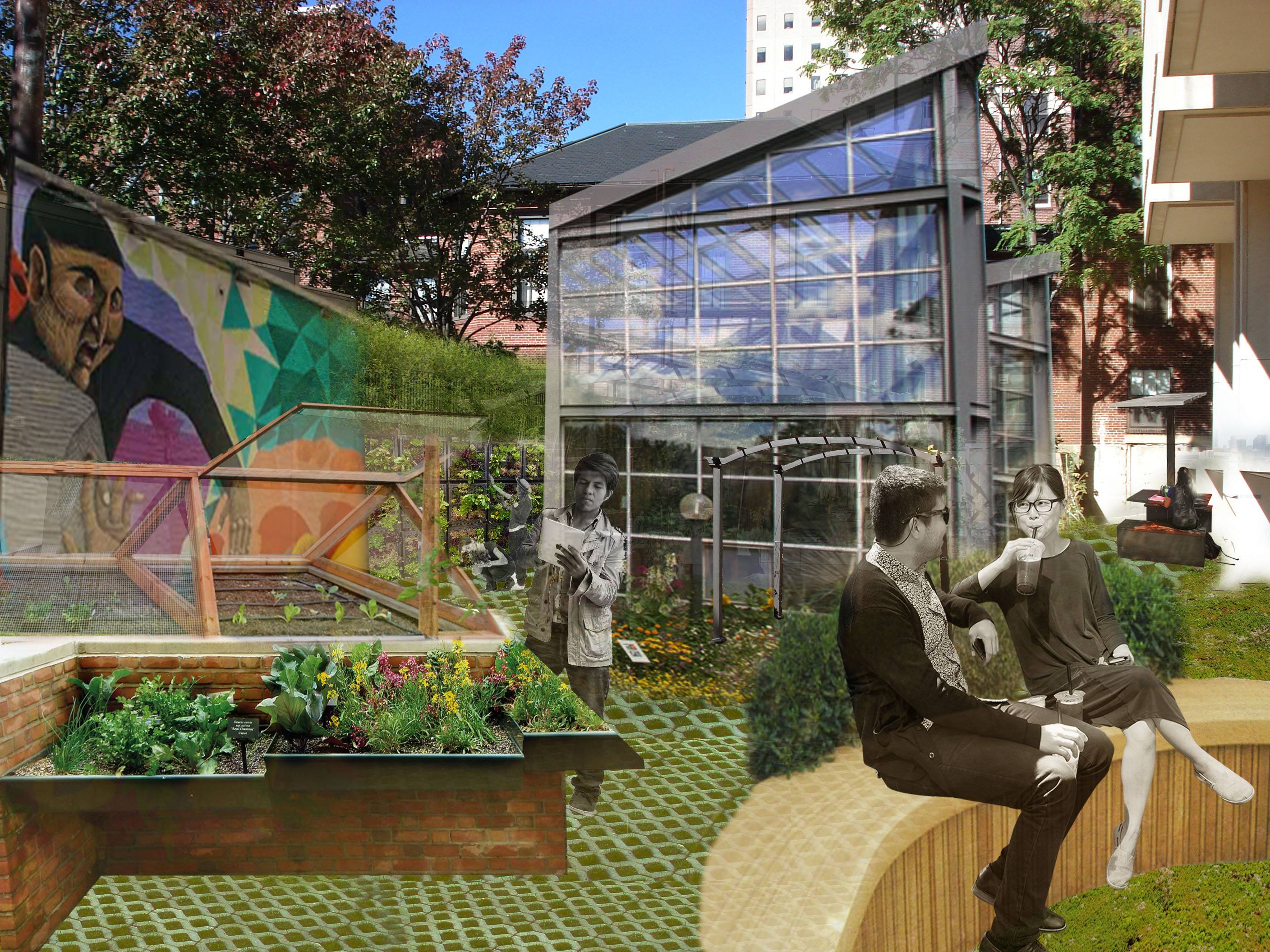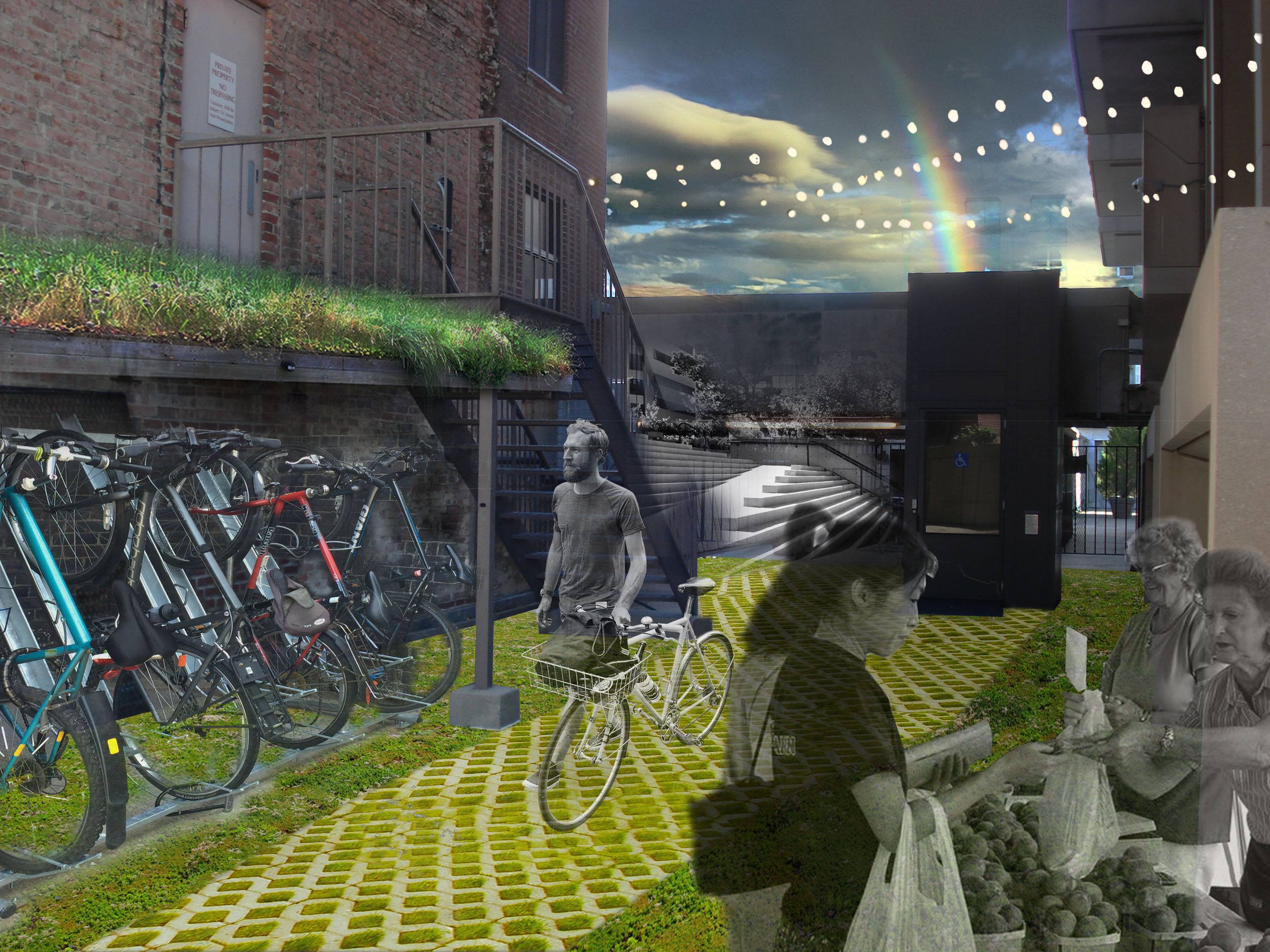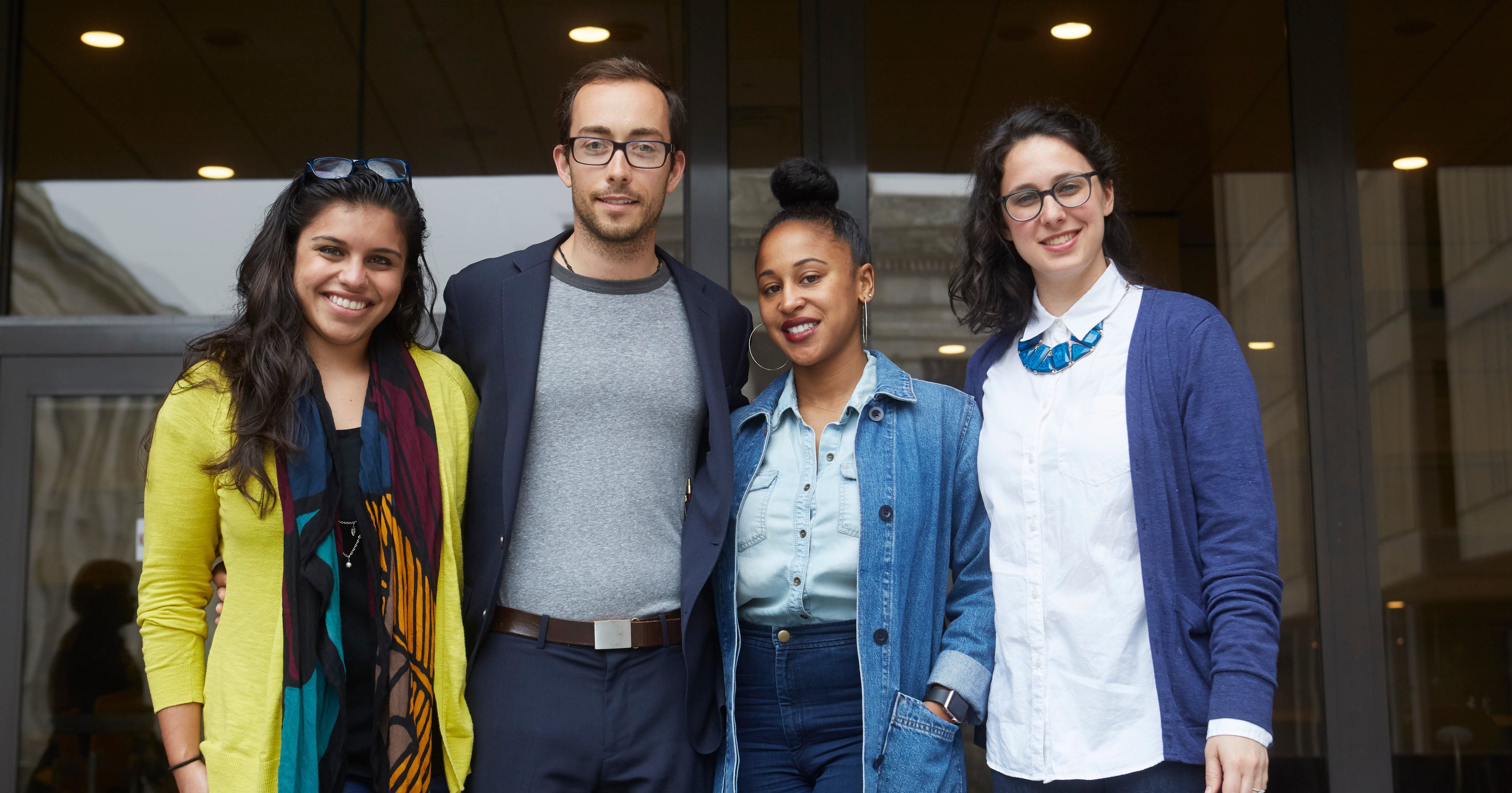An innovative oasis in Longwood will relieve city stress.

It’s deep summer in Boston. Oppressive humidity slows you down. Sidewalks radiate heat. Droning insects and city traffic hum. Just across the courtyard from the Kresge Building of the Harvard T.H. Chan School of Public Health, you happen upon a place of respite in your otherwise stressful day.
It is a place of cooling shade, lush-green, canopied by native trees. Settling in on a comfortable bench, you notice that something is missing—the nonstop urban soundtrack, thanks to the living willow fences and sound-absorbing walls.

You turn to admire the murals painted by members of the local Mission Hill community and check out the handiwork of volunteer gardeners whose plantings foretell a crisp salad later in the week. Your gaze wanders over to the fresh produce at the farm stand, and you begin to envision a succulent plant-based evening meal. You notice a class by the herb beds and wonder if the students are learning about herbal medicinal treatments past and present.
It’s then that you realize the stress of the day has slipped away. Spirits lifted, you text your friends to meet you at the Countway CoLab.
A Green Dream
The brainchild of five budding garden designers from across the University, the Countway CoLab doesn’t exist yet except on paper. But with Erika Eitland’s passion and determination, what is currently the small, hidden Countway Community Garden will someday be a flourishing multiuse community space conceived by Harvard students.
Eitland, SD ’20, a doctoral candidate in environmental health and president of the School’s Built Environment & Health Student Consortium, first learned about the community garden soon after arriving at the Harvard Chan School. Now she is leading the effort to make the Countway CoLab—or some version of it—come to fruition.
Hidden Gem
Tucked away alongside Countway Library, behind the bicycle cage and above the rare-book stacks in the library’s Center for the History of Medicine, the current Countway Community Garden was created in 2012 by staff and faculty from the Harvard Chan School and Harvard Medical School.
Bounded by the library and by concrete walls, the garden features 17 raised wooden beds of various heights. Since the garden sits on pavement above the subbasement of the Countway Library, there is no soil beneath it.
During spring and summer, volunteers from the three Longwood schools tend to beds of their own vegetables, herbs, and flowers. A large bed of medicinal herbs for teaching, two strawberry beds, and pots containing tomatoes, mint, chamomile, and basil are communally managed. But fecund as it may be, it’s a city garden cut off from its city—and from most of the Longwood community.
Cultivating Student Input
In spring 2016, Eitland and her classmates discovered that the bike cage adjacent to the garden was to be moved to accommodate a new ramp connecting Harvard Medical School with the Harvard Chan School—one of several projects to bring the Harvard Longwood Campus into compliance with the Americans with Disabilities Act. “When we heard about the relocation of the bike racks,” says Eitland, “we started focusing on the need to preserve the garden area as a community space. And we realized we could harness students’ perspectives and knowledge in shaping its future.”
Thus was born the Re(Design) Innovation Challenge, a competition held in fall 2016 to create new visions for the garden. The challenge was open to teams of students from across Harvard, with each team required to include at least one Longwood-area student. An instrumental leader of the project was Adam Meier, a manager on the Longwood Campus with Harvard’s Office for Sustainability—and a member of the inaugural cohort of the MPH in sustainability, health, and the global environment beginning this fall. “The Re(Design) Innovation Challenge was a One Harvard initiative from the beginning,” Meier says.

The five participating teams were charged with designing a space that addressed the Countway Community Garden’s current and future environmental and community challenges, including issues of noise, heat, access to water, pests, materials selection, safety, inclusivity, and planning for climate change. The designs also had to incorporate the University’s mission of teaching, studying, collaboration, and research—and address the need to divert rainstorm runoff from the garden that habitually leaked into the ceiling of the rare-book room.
Nearly 750 people voted online for their favorite team, and the three finalists presented their designs to a panel of judges. The winner, the Green Dream Team, included two Harvard Chan students, Shoshanna Levine, DrPH ’18, and Meghan Venable-Thomas, DrPH ’18; a student from the Business School; one from the Graduate School of Design; and a freshman at Harvard College. Their Countway CoLab represents a true urban sanctuary. It will be energy-and-water-self-sufficient; maximize space through vertical bike racks and plantings; promote learning, relaxation, and well-being; and welcome visitors from the surrounding community.
“The redesign translated what we’ve learned about social and behavioral sciences, climate science, and environmental health into an actual space,” notes Eitland. “Many of the solutions were right across the courtyard at the Harvard Chan School.” Adds Venable-Thomas, “For me, the idea was to change the way people think about community engagement, collaboration, and public spaces, but it is still only an idea. My hope is that the Countway CoLab evolves into a living, breathing garden.”
–
Jan Reiss is assistant director of development communications and marketing at the Harvard Chan School.
Detailed information about the Re(Design) Innovation Challenge, including all teams’ submissions, can be found at green.harvard.edu/reinnovate.







